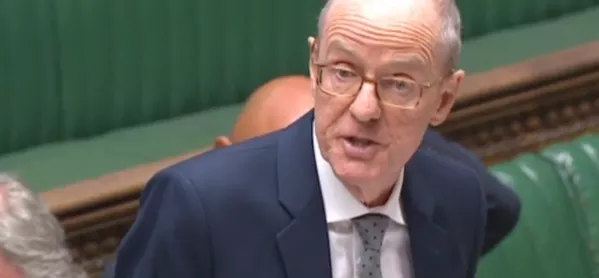Schools are having to cut provision and staff because the Department for Education has not fully funded the teachers’ pay award, MPs have heard.
In July, the government announced a pay award of up to 3.5 per cent for teachers, which it described as “fully funded”.
However, its new teachers’ pay grant will not cover the first 1 per cent of the pay award, which it said schools should have already budgeted for, in line with the previous public sector pay cap.
During education questions in the House of Commons this afternoon, schools minister Nick Gibb again said the pay award was “fully funded”.
Labour MP Ruth Cadbury, of Brentford and Isleworth, said: “This is not the experience of heads and governors in Hounslow.
“The pay award is not fully funded and schools are expected to pick up the tab for the first 1 per cent of the cost of the pay award, and so they are having to make further cuts to schools’ provision and staffing, and also they have not been told how the pay award will be funded after 2020.”
In response, Mr Gibb said the pay award “is being funded over and above the 1 per cent that schools have already budgeted for”.
Tes has previously reported that some schools have not budgeted for this 1 per cent rise.
Schools ‘facing cost pressures’
Mr Gibb also raised the issue of union leaders’ pay, adding: “Pay scales for headteachers now range to up to £111,000 for some heads - £118,000 for headteachers in inner London - although I accept these figures are not as high as the pay for the general secretary of the National Association of Head Teachers, which is over £200,000.”
Ms Cadbury was not the only MP to raise concerns about school funding.
Conservative backbencher Philip Davies, representing Shipley, said that while per-pupil funding was going up by a “miniscule amount”, “it is quite clear that costs, of which teachers’ pay is only one, are going up much faster than the per-pupil increase in schools”.
He asked what the minister could do to ensure that schools’ budgets “rise at a rate that makes sure they cover the increased costs they are expected to incur”.
Mr Gibb said school funding was at record levels, but the government “accepts that schools are facing some cost pressures”.
He said the DfE was helping schools with their resource management through a national buying scheme for things like energy and computers, and a free teacher vacancy scheme.




